Music Therapy in Adoption and Trauma: Therapy That Makes a Difference After Placement
£23.80
Music therapy is a valuable method of support and treatment for those dealing with trauma within the adoption community. Music Therapy in Adoption and Trauma offers a timely and much-needed perspective for music and creative arts therapists, as well as families themselves.
Addressing topics such as contemporary adoption processes, potential resulting trauma, attachment and adoption breakdown, the book looks at why music therapy specifically can help. Throughout, it centres the value of lived experience in increasing understanding of trauma and effective support.
Following a decade of dramatic change within the adoption practice, this book is an invaluable resource for those looking to support individuals and families impacted by adoption.
Read more
Additional information
| Publisher | Jessica Kingsley Publishers (21 May 2021) |
|---|---|
| Language | English |
| Paperback | 224 pages |
| ISBN-10 | 1785925237 |
| ISBN-13 | 978-1785925238 |
| Dimensions | 15.2 x 1.3 x 22.9 cm |


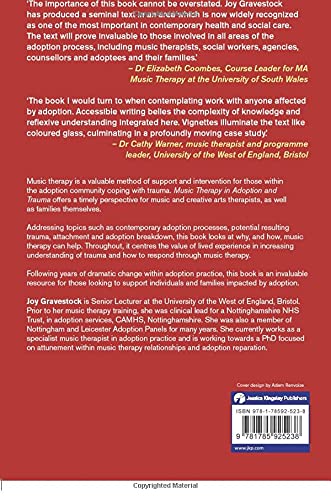
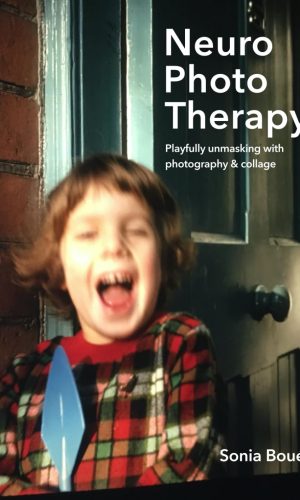
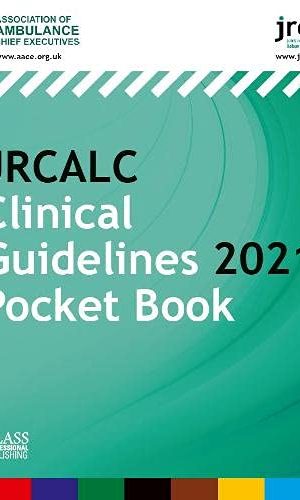
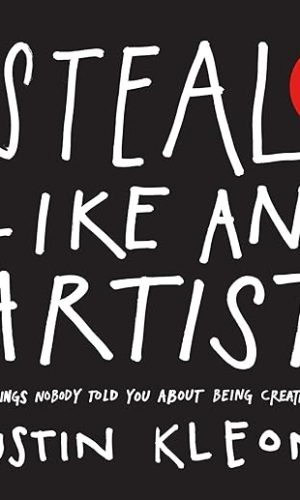
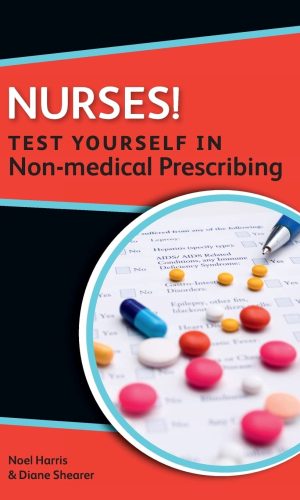
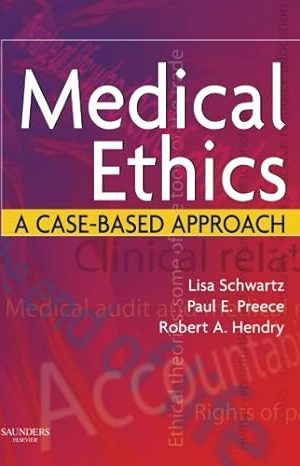
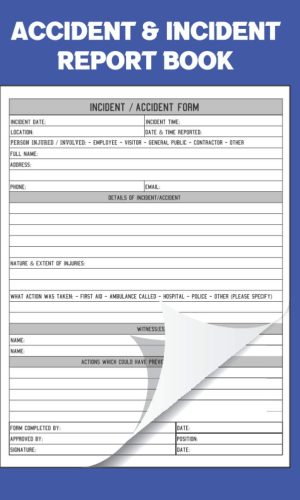

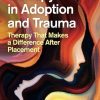
by Mollie
This is an inspiring book. Gravestock explains the issues, difficulties and joys of working with adoptees very clearly and so gently. This is a deep insight into the different stages of adoption and how music therapists can work with the adoption community with a view to assisting relationships within the entire family. As a music therapist with lived experience, she has a profound understanding the different facets of the, often complicated, relationships within an adoptive family. Her empathetically explained experiences and vignettes describe how certain approaches can be used by music therapists, and also the wealth of information within this book will be really useful for anyone working with or living among the adoption community. Highly recommend!
by B. Christine Smith
Throughout the three years of my master’s degree in music therapy, I read extensively – especially for my dissertation on embodiment. This book made anything and everything that had not quite made sense before become meaningful and understandable. Joy’s writing ‘speaks’ from the pages and she seems to have taken so much care to make complex and difficult subjects and concepts accessible and understandable. There is so much depth, care and meaning expressed in the writing from lived experience and the case vignettes provide even more clarity. For someone who doesn’t know much about music therapy, adoption, trauma or embodiment, this book would be such a good entry point and for music therapy students and music therapists, it is invaluable.
by Erica H.
This is one of the most interesting books I’ve ever read. Not being a medic, or a musician, I found every page a revelation and education. I consider it essential reading for anyone involved with the world of music therapy and adoption. It is also accessible to the general public, but I think a certain level of education is necessary to be able to guess the implications of certain words and phrases. Possibly an index at the back directing the reader to passages on attunement, holding and being dropped would have been useful for a reader like me. I found my background useful (artist and retired Open University undergraduate tutor in Art History) in terms of transferrable skills -many of my students had ‘additional requirements’. I felt acute resonances with other people’s lives, including my own extended family and even myself. I also learned a lot about music in a manner which is accessible to me as an artist.
The book proceeds in a logical fashion, leading the reader through aspects such as how to access funding for music therapy and the author’s personal development as a music therapist.
It is painful reading when it comes to ‘case vignettes’, in that we are made to ‘witness’ so much suffering. Take seven year old Alice, for example, who had previously experienced adoption failure soon after placement due to her three brothers’ behaviour. As well as trying her best to restrain her brothers through fear of being abandoned yet again, Alice was exceptionally well behaved, including at therapy sessions. So much strain for one so young, but she was lucky to have this particular therapist who could see through the facade. Indeed , the author must have brought about incalculable healing in these children’s lives. Whilst their traumatic pasts will never disappear completely, they have been shown another way to be through music therapy. Before I read this book I only had a rough understanding of what music therapy involves. Now I have the deepest respect for those who practice it.